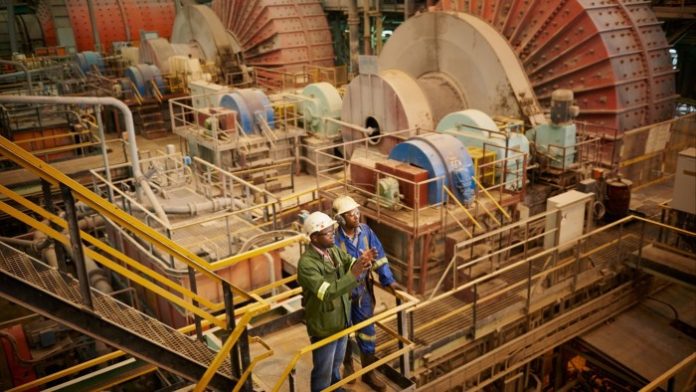Unlock the Editor’s Digest for free
Roula Khalaf, Editor of the FT, selects her favourite stories in this weekly newsletter.
Glencore has held preliminary discussions about selling its multibillion-dollar copper and cobalt mines in the Democratic Republic of Congo, in what would be a significant shift in strategy by the biggest western investor in the African country.
The FTSE 100 group last month rejected an unsolicited bid for the mines from a potential buyer in the Middle East because the offer was too low, according to people familiar with the matter.
The company would consider selling part or all of its Congolese assets for the right price, according to several people familiar with the matter.
Some of the people added that the company had not started a formal sale process and it was possible that no deal would be completed.
Glencore owns the Mutanda copper-cobalt mine and a 75 per cent stake in the Kamoto Copper Company, in which Congolese state-owned miner Gécamines also has a holding. Analysts at RBC value the mines at $6.8bn.
The mines have been a key part of Glencore’s pitch to western carmakers to be their supplier of choice for a suite of electric vehicle metals.
The global rush for copper, a red metal used in wiring, cables and electric vehicles, has triggered a wave of mergers and acquisitions activity among the major miners.
However, the Congolese mines have been far less profitable than Glencore’s other copper assets — generating just $195mn of earnings in 2023 on revenues of $2.4bn — because of operating setbacks and low cobalt prices.
Last February Glencore took a $1bn pre-tax impairment on the Congolese copper mines because of poor cobalt market conditions and the settlement of a tax dispute.
Glencore said in a statement: “At the end of last year, Glencore received an unsolicited approach regarding its operations in the DR Congo. The approach was rejected. Glencore has not engaged any banks or advisers and is not running a sale process for its operations in the DR Congo.”
In recent weeks, Glencore has separately held informal discussions with potential buyers over the future of its assets in Kazakhstan, according to people familiar with the talks.
Glencore abandoned a sale process last year for Kazzinc, a large zinc, lead and gold producer in which it holds a 70 per cent stake. RBC estimates the value of the stake at $5.1bn.
The sales would potentially be the biggest disposals by Glencore since chief executive Gary Nagle took the helm in 2021.
Glencore declined to comment on the potential disposal of assets in Kazakhstan.
Its departure from DR Congo would be a significant setback to the country’s attempts to court western investment to reduce reliance on China. Glencore is the only major non-Chinese foreign investor in the country’s mines besides Kazakhstan-based Eurasian Resources Group.
Glencore’s Congolese mines produced 225,000 tonnes of copper and 35,000 tonnes of cobalt last year, making the group the world’s second-biggest cobalt producer.
Any potential sale would be further complicated by the fact that Glencore pays royalties on the mines’ output to Israeli businessman Dan Gertler, who is under US sanctions.
Glencore is one of the world’s biggest commodity traders and also has a large mining portfolio. It is the world’s sixth-largest producer of copper, and top western producer of thermal coal.
Last year Glencore held brief merger talks with Anglo-Australian group Rio Tinto, and the previous year it made a $23bn hostile bid to acquire Teck Resources of Canada, which was rebuffed.
The company is due to report its annual results on Wednesday.




